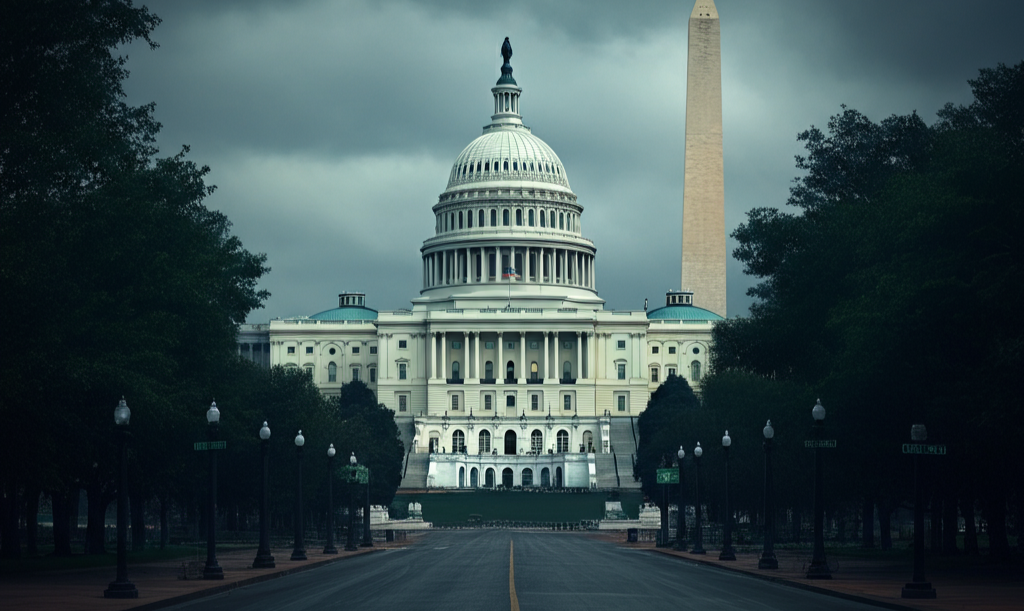Navigating Government Shutdowns: A Contractor’s Guide with Marion Square
Author: Harvey Morrison
When Congress fails to pass funding legislation, the federal government officially shuts down. For federal contractors, a shutdown introduces a period of significant uncertainty, affecting ongoing projects, payment schedules, and future business opportunities.
At Marion Square, we’ve guided technology vendors, integrators, and federal contractors through multiple shutdown cycles. We know where the risks are and where opportunities still exist. This guide explains what happens during a shutdown, how it impacts contractors, and the essential strategies Marion Square helps companies implement to manage the disruption and protect their interests.
What is a Government Shutdown?
A government shutdown occurs when Congress and the President fail to pass appropriations bills that fund government operations. Without this approved funding, federal agencies must halt non-essential functions.
Each shutdown is unique, but the core issue remains the same: a lapse in federal funding that brings much of the government to a standstill. The duration is unpredictable, lasting anywhere from a few days to several weeks, depending on how quickly lawmakers can reach a new funding agreement.
Marion Square’s Perspective: Because shutdowns vary in scope and duration, we help clients stress-test their contract portfolios in advance so they understand which programs are insulated and which are at risk.
How Do Federal Agencies Proceed During a Shutdown?
Once a shutdown is official, the Office of Management and Budget (OMB) directs federal agencies to implement their contingency plans. For contractors, this means the government personnel you regularly interact with like contracting officers (COs) and contracting officer’s representatives (CORs) may be unavailable.
The specific programs that continue to operate are determined by each agency’s shutdown plan and the administration’s directives. This variability makes it crucial for contractors to seek clear guidance on the status of their specific projects.
Marion Square’s Recommendation: We provide real-time monitoring of agency contingency plans and help clients maintain communication lines with primes, teaming partners, and alternative points of contact to stay informed and engaged.
How Does a Shutdown Affect Government Contracts?
The impact of a shutdown on your contract depends heavily on its funding status and the nature of the work. Here’s what you can expect:
Impact on Existing Contracts: If your contract is already funded with money from a previous fiscal year, it may continue. But you could still receive a stop-work order or a termination notice, especially if your work requires access to federal facilities or direct collaboration with furloughed personnel.
Delays and Cancellations: New solicitations, evaluations, and contract awards are almost always delayed, grinding the procurement pipeline to a halt. While statutory deadlines for bid protests typically do not change, resolution can be slowed significantly.
Payment and Invoice Disruptions: One of the most immediate concerns for contractors is cash flow. Even if work continues, invoice processing often slows dramatically.
Marion Square’s Recommendation: We help companies build continuity plans, model cash-flow scenarios, and document shutdown-related impacts to strengthen claims for equitable adjustments once normal operations resume.
Marion Square’s Shutdown Navigation Framework
Government shutdowns have become a recurring challenge for federal contractors. Success requires agility, foresight, and the ability to pivot capture and delivery efforts.
Here’s how we guide clients:
Before a Shutdown
Review contract funding status (prior vs. current year).
Identify high-risk contracts tied to government facilities or daily COR support.
Secure lines of credit and plan working capital adjustments.
During a Shutdown
Stay connected with primes and partners that remain active.
Redirect BD efforts to long-term positioning (marketing, capture, partner mapping).
Document delays, disruptions, and added costs for later recovery.
After a Shutdown
Be prepared for a surge of delayed solicitations and opportunities.
Watch for agencies prioritizing “catch-up” contracts in Q2.
Re-engage COs and program offices quickly to reset capture strategies.
Moving Forward in an Uncertain Environment
A shutdown is a reminder of the importance of clarity and preparation in the federal marketplace. At Marion Square, we provide:
Market intelligence to anticipate where delays will hit hardest.
Contract analysis to identify which programs are at risk or insulated.
Strategic planning to help companies emerge stronger once the government reopens.
Shutdowns are disruptive, but they don’t have to derail your business. With the right strategy and the right partner you can manage through uncertainty and position your company for success when the pipeline reopens.
Contact Marion Square today to learn how we can help you navigate shutdowns and build long-term resilience in the federal market.

